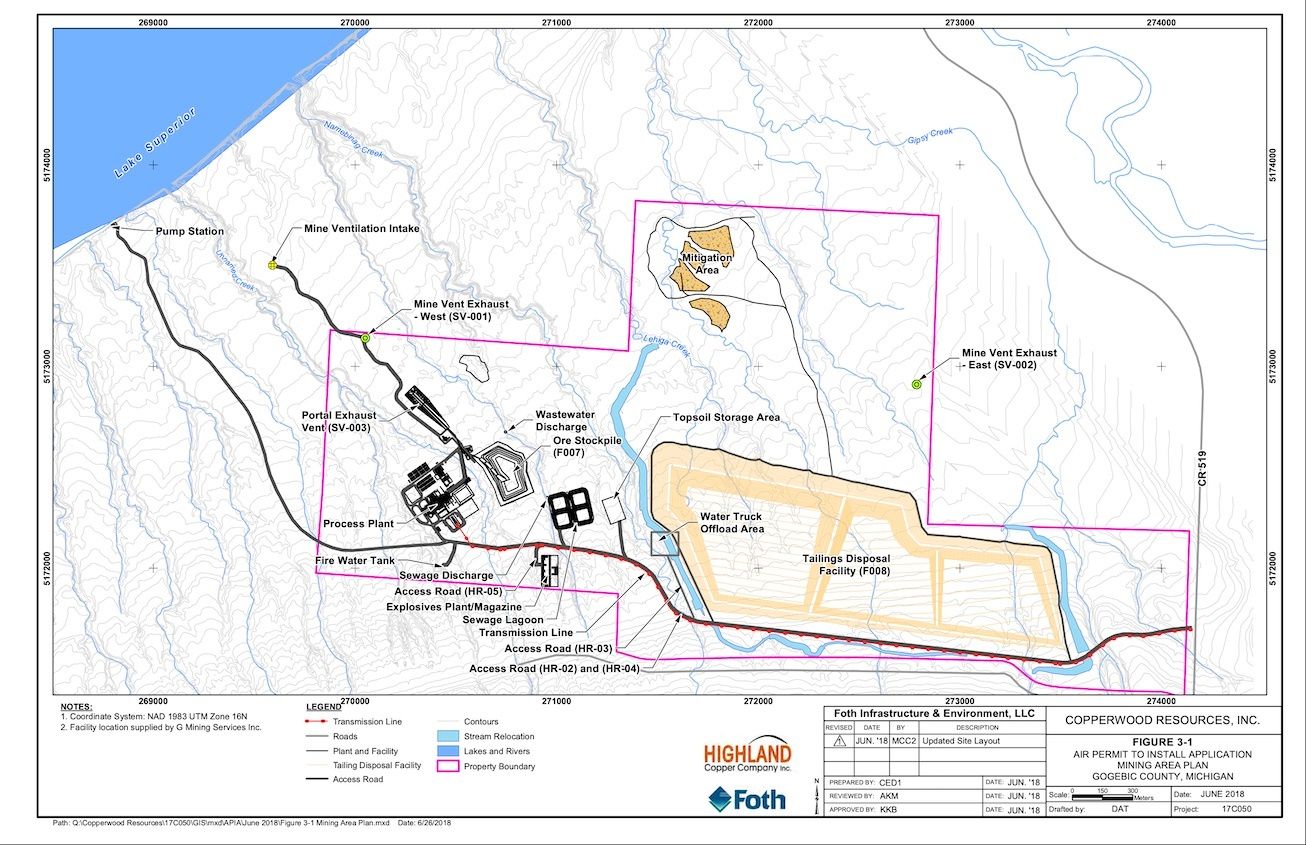- The906Report
- Posts
- Mine Opponents Celebrate Defeat of Copperwood Infrastructure Grant
Mine Opponents Celebrate Defeat of Copperwood Infrastructure Grant
Decision comes down to the wire as Michigan budget is finalized

Grant to Wakefield Township was for roads, power grid and telecommunications
Opponents decried proposed use of taxpayer funds for controversial private project
Copperwood backers claim continued public support for the mine
Michigan state lawmakers have rejected a proposed $50 million grant to Wakefield Township that could have paved the way for the Copperwood mine project in the western Upper Peninsula.
The grant was not included in the fiscal 2026 budget passed by the legislature and signed into law by Gov. Gretchen Whitmer on Oct. 7.
The grant, proposed as an earmark by Rep. Greg Markkanen (R-Hancock), would have paid for road improvements, power upgrades and enhanced telecommunications in Gogebic County.
The grant would not have funded the Copperwood mine directly, but would have signaled state support for the proposed Copperwood project, “which would bring hundreds of millions of dollars in investments, jobs, and long-term development to the rural, underserved western Upper Peninsula,” Markkanen said in a Sept. 19 news release.
The grant was included in the budget passed by the state House of Representatives, but not in the Senate version. It was dropped during behind-the-scenes negotiations to reconcile the two bills prior to a final vote.
“It’s time to celebrate a major victory,” said Jane Fitken of Citizens for a Safe and Clean Lake Superior, one of the groups that opposed the grant. “We're thankful to the senators for listening to the people, recognizing the harm posed by the Copperwood mine, and preventing our tax dollars from being misused on this irresponsible project.”
Final decision was “a close one”
“We're told that the decision to eliminate the funding was made based on pushback from both environmentalists and businesspeople stating that the mine should advance on its own two feet,” said Tom Grotewohl of Protect the Porkies in an email. The decision to reject the grant was a “close one,” Grotewohl said, especially after Gov. Whitmer reportedly pushed for inclusion of the money in the budget and U.S. Sen. Elissa Slotkin publicly endorsed the mine.
“But in the following week, the winds shifted,” Grotewohl said. “Our lawmakers heard from us in massive numbers, and you know what? They listened!”

Copperwood mine site plan. Source: Highland Copper Company, Inc., air use permit application.
Mine would be a massive industrial enterprise
The Copperwood is planned as an underground mine. Its above-ground features would cover about 410 acres on the southwestern edge of the Porcupine Mountains Wilderness State Park.
A tailings disposal facility would hold almost 27 million tons of semi-liquid mill waste by the end of the project’s currently-permitted 11-year lifespan. The tailings basin would be more than a mile wide and would be located less than two miles upstream from Lake Superior.
Copperwood pros and cons have been hotly debated
Supporters of the project call it a “once-in-a-generation opportunity” to bring 380 good-paying jobs to an economically depressed corner of the Upper Peninsula. The mine would generate $12 million in local, county and state tax revenue and $130 million in new spending to Michigan businesses annually, according to Highland Copper.
The project has widespread support at the local and state level. It also has attracted highly organized opposition, led by Protect the Porkies and Citizens for a Safe and Clean Lake Superior. An on-line petition opposing the mine has garnered almost 470,000 signatures , and a large number of politically active organizations has come out against the project.
Potential for a catastrophic tailings dam failure that would send millions of tons of mine waste downstream into Lake Superior.
Degradation of the environment near the Porcupine Mountains Wilderness State Park due to light, noise, air and water pollution, subterranean blasting, rock-grinding, and nonstop industrial traffic.
Lack of long-term regional economic benefits due to short projected mine life.
The fight is not over
Copperwood opponents plan to gather in Marquette on Oct. 22 to celebrate their victory and plan future efforts to oppose the Copperwood mine.
Meanwhile, Copperwood supporters have reaffirmed their commitment to the project.
“While we are disappointed that funding wasn’t included in this year’s budget, our confidence is unwavering. Highland Copper remains ready to deliver economic opportunity and a model for responsible mining and is committed to moving Copperwood forward safely and successfully, for this community and for generations to come,” said CEO Barry O’Shea in a news release.
Local and state officials, and economic development advocates, also expressed their determination to get the Copperwood project financed and into operation.
Highland Copper was given the opportunity to comment on this report.